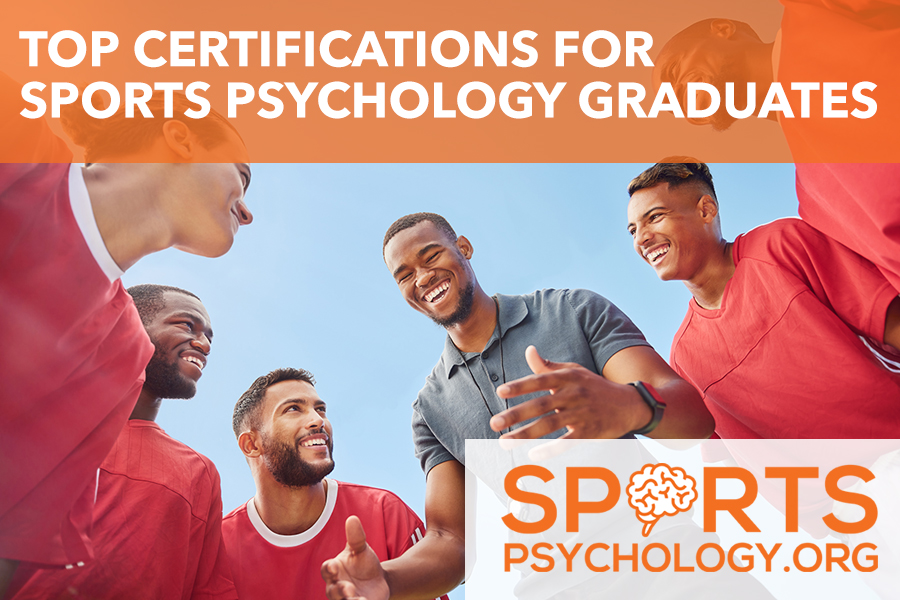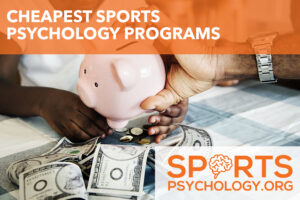Top Certifications for Sports Psychology Graduates
Sports psychology has emerged as a critical component in optimizing athletic performance across all competitive levels. For graduates with a sports psychology degree, obtaining specialized certifications and licenses can significantly enhance career prospects, earning potential, and professional credibility. These credentials demonstrate expertise and commitment to the field while providing structured pathways for career advancement.
Read on to explore the most valuable certifications and licenses available to sports psychology graduates, detailing requirements, benefits, and career implications for each credential.

Essential Certifications in Sports Psychology
Certified Mental Performance Consultant (CMPC)
The CMPC certification, offered by the Association for Applied Sport Psychology (AASP), represents the gold standard in the field. This certification verifies that practitioners have met rigorous educational and training requirements to provide sport psychology services.
Requirements:
- Master’s in Sports Psychology or Ph.D. in Sports Psychology or related field
- Completion of specific coursework in designated knowledge areas
- 400 hours of mentored experience
- Successful completion of certification exam
The CMPC designation enables practitioners to work with athletes at all competitive levels, from youth sports to Olympic and professional teams.
Licensed Professional Counselor (LPC)
For sports psychology graduates looking to incorporate clinical counseling into their practice, the LPC credential is essential. This state-issued license allows practitioners to provide mental health counseling services.
Requirements:
- Master’s or doctoral degree in counseling or related field
- 2,000-4,000 supervised clinical hours (varies by state)
- Passing score on the National Counselor Examination (NCE)
- Fulfillment of state-specific requirements
With this license, sports psychologists can address both performance enhancement and mental health issues, broadening their service offerings and client base.
Board Certified Sports Psychologist (BCSP)
Offered by the American Board of Sport Psychology (ABSP), this advanced credential focuses specifically on the application of psychological principles to athletic performance enhancement.
Requirements:
- Doctoral degree in psychology
- Specialized training in sport psychology
- 300+ hours of supervised experience in sports psychology
- Comprehensive examination
This certification is particularly valuable for those aiming to establish private practices focused exclusively on athletic performance.
Certified Strength and Conditioning Specialist (CSCS)
While primarily focused on physical training, the CSCS certification complements sports psychology expertise by adding credibility in understanding the physical aspects of athletic performance.
Requirements:
- Bachelor’s degree or higher
- CPR/AED certification
- Passing score on CSCS examination
This certification enables sports psychologists to better integrate mental skills training with physical conditioning programs.
Certification for Specialty Population
International Olympic Committee (IOC) Certificate in Sports Psychology
The prestigious IOC Certificate in Sports Psychology credential is specifically designed for practitioners working with elite and Olympic-level athletes.
Requirements:
- Advanced degree in psychology or sport science
- Experience working with high-performance athletes
- Completion of IOC sports psychology program
- Case study submission
Complementary Certifications
Certified Sports Nutrition Specialist (CSNS)
The Certified Sports Nutrition Specialist focuses on the connection between nutrition, mental state, and performance, which can enhance a sports psychologist’s practice.
Requirements:
- Bachelor’s degree or higher in a health-related field
- Completion of specialized courses in sports nutrition
- Passing score on certification examination
Biofeedback Certification (BCB)
Biofeedback certification enables practitioners to use biofeedback techniques to help athletes control physiological responses to stress and anxiety.
Requirements:
- Graduate degree in psychology or related field
- 48 hours of didactic biofeedback education
- 20 hours of personal biofeedback training
- 50 hours of supervised biofeedback client sessions
Comparison of Major Sports Psychology Certifications
| Certification | Minimum Education | Experience Required | Exam | Renewal Period | Best For |
| CMPC | Master’s | 400 hours | Yes | 5 years | General sports psychology practice |
| BCSP | Doctorate | 300 hours | Yes | 5 years | Advanced specialized practice |
| LPC | Master’s | 2,000-4,000 hours | Yes | 1-2 years | Clinical practice integration |
| CSCS | Bachelor’s | None | Yes | 3 years | Physical performance integration |
| IOC Certificate | Master’s/Doctorate | Elite athlete experience | No | 4 years | Olympic/elite athlete work |
Building a Strategic Certification Path
For new graduates, strategic certification planning can maximize career opportunities. Consider this progression:
- Begin with foundational certifications like CMPC to establish credibility
- Add complementary credentials based on career specialization goals
- Pursue advanced certifications as experience grows
- Maintain certifications through continuing education
The ideal certification combination depends on career objectives, whether working in clinical settings, athletic organizations, educational institutions, or private practice.
Which Certifications Are Right For You?
The right certifications can dramatically enhance a sports psychology graduate’s career trajectory, opening doors to prestigious positions and increasing earning potential. By strategically selecting credentials that align with personal career goals and market demands, practitioners can establish themselves as specialized experts in this growing field.
When evaluating certification options, consider factors like credential recognition within target employment settings, time and financial investment required, and the specific skills and knowledge each certification develops. With the right credentials, sports psychology professionals can effectively demonstrate their expertise and commitment to excellence in this dynamic field.
Frequently Asked Questions
What is the most recognized certification for sports psychologists?
The Certified Mental Performance Consultant (CMPC) credential from the Association for Applied Sport Psychology is widely considered the gold standard certification in sports psychology.
Can I practice sports psychology without certification?
While some positions may not explicitly require certification, most reputable organizations and teams prefer certified professionals. Certification significantly enhances credibility and employment opportunities.
How long does it typically take to become certified in sports psychology?
After completing the necessary graduate degree, most certifications require 1-2 years of supervised experience plus exam preparation time. The full path typically takes 2-3 years post-graduation.
What is the difference between a sports psychologist and a mental performance consultant?
A sports psychologist typically has a doctorate in psychology and can diagnose and treat mental health conditions. A mental performance consultant focuses specifically on performance enhancement without providing clinical mental health services.
How much do certified sports psychology professionals earn?
Certified professionals typically earn between $60,000-$100,000 annually, with those holding multiple certifications or working with elite athletes or professional teams often earning significantly more.


- Top Certifications for Sports Psychology Graduates - April 15, 2025
- A Day in the Life of a Sports Psychologist - June 19, 2024
- Student Athlete Mental Health Resources - January 25, 2024

